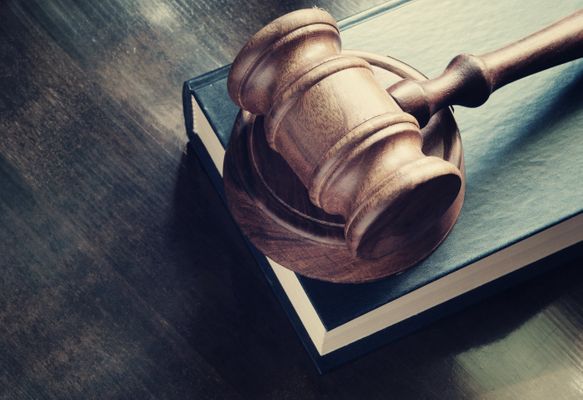1.4.1
Development of Rights in the UK
History of UK Rights
History of UK Rights
Since the Magna Carta, there have been several important laws and developments that have increased the rights and protections of those rights of people in the UK.


Magna Carta and Bill of Rights
Magna Carta and Bill of Rights
- Magna Carta, 1215:
- Restrictions were imposed on the monarchy to stop the monarch from abusing power.
- Bill of Rights, 1689:
- The Bill of Rights introduced more limits on the power of the monarchy.
- The Bill of Rights also introduced rights of parliament such as free elections and, parliamentary free speech


Advances in Europe
Advances in Europe
- European Convention on Human Rights (ECHR), 1953:
- The ECHR was signed by the UK in 1951, and came into force in 1953. Signing this meant that all UK government actions needed to be in compliance with the ECHR
- Includes articles such as the right to life, and the right to freedom from torture.
- European Court of Justice, 1973:
- After the UK joined the European Economic Community, the European Court of Justice protected the rights of UK workers.


Data Protection Act, 1984
Data Protection Act, 1984
- The Data Protection Act protected the personal information that public organisations held.


Human Rights Act, 1998
Human Rights Act, 1998
- The Human Rights Act meant that the European Convention on Human Rights (ECHR) became codified into British law.


Freedom of Information Act
Freedom of Information Act
- The FOIA allowed UK citizens to access some information held by UK public institutions. However, some information, for example relating to national security cannot be accessed.


Equality Act, 2010
Equality Act, 2010
- The Act brought together all UK anti-discriminatory measures into a single document.
- Protects workers and the general public from discrimination.
- The act includes different types of discrimination, including age discrimination and disability discrimination.
The Human Rights Act, 1998
The Human Rights Act, 1998
The Human Rights Act meant that the European Convention on Human Rights (ECHR) became codified into British law.


Examples of Use of the Act
Examples of Use of the Act
- There have been a number of cases of the Human Rights Act serving to defend the rights of individuals within the UK.
- Abu Qatada, a Jordanian national who was deemed to have connections to terrorist groups, was not able to be deported in 2012 because evidence used against him was gained through torture.
- After the Hillsborough disaster, families of victims used the Human Rights Act to force an in-depth inquiry into the deaths.


Effective at protecting rights
Effective at protecting rights
- The Human rights Act meant that rights became enshrined in a clear way in statute.
- The Human Rights Act must be complied with by legislation.
- The Human Rights Act has meant that citizens can ensure the protection of their rights through courts in the UK.


Ineffective at protecting rights
Ineffective at protecting rights
- As the Human Rights Act has not been entrenched it can be replaced and so does not offer sufficient protection of rights and liberties.
- The Conservative Party has planned to replace the Human Rights Act with a ‘British Bill of Rights’.
- The Human Rights Act is limited in its protection as it cannot overturn legislation which has been made in parliament.
- The government can ‘set aside’ the Human Rights Act.
- The rights of terror suspects were set aside after the 9/11 terrorist attacks.
Civil Liberty Pressure Groups
Civil Liberty Pressure Groups
There are several pressure groups involved in research to protect civil liberties in the UK.


Liberty
Liberty
- AKA the National Council for Civil Liberties.
- The biggest pressure group protecting civil liberties.
- Aim to make sure freedom and rights of individuals and communities are protected.
- Work by public campaigning, working with parliament, giving out free advice and analyse policy.
- Not affiliated with any political party, and doesn’t receive government funding.
- Currently campaigning to end indefinite detention and take the government to court over the Snooper’s Charter.


Unlock Democracy
Unlock Democracy
- Formed as Charter88.
- Campaign for democratic reform and a participatory democracy.
- Campaign for a written constitution in the UK to protect the rights of citizens, empower local communities and institute proportional representation.
- Grassroots campaign, so work in local communities at the ground-level.
- Not affiliated with any political party.
1Democracy & Participation
1.1Representative & Direct Democracy
1.2Wider Franchise & Suffrage
1.3Pressure Groups & Other Influences
2Political Parties
2.1How Political Parties Work
2.2Established Political Parties
2.3Emerging & Minor Political Parties
3Electoral Systems
3.1Different Electoral Systems
3.2Referendums & How They Are Used
4Voting Behaviour & the Media
5Conservatism
5.1Conservatism: Core Ideas & Principles
5.2Conservatism: Differing Views & Tensions
6Liberalism
6.1Liberalism: Core Ideas & Principles
6.2Differing Views And Tensions Within Liberalism
7Socialism
7.1Socialism: Core Ideas & Principles
7.2Differing Views And Tensions Within Socialism
8The UK Constitution
8.1Nature & Sources of UK Constitution
8.2Constitutional Change since 1997
8.3Role & Powers of Devolved UK Bodies
9The UK Parliament
9.1Houses of Parliament
9.2Comparative Powers
9.3Legislative Process
10The Prime Minister & the Executive
10.1The Executive
10.2Ministerial Responsibility
10.3Prime Minister & the Cabinet
10.3.1Role of the Prime Minister
10.3.2Prime Minister's Powers
10.3.3Limits on the Prime Minister's Powers
10.3.4Role of the Cabinet
10.3.5Prime Minister & Cabinet: Relations
10.3.6Prime Minister & Cabinet: Balance of Power
10.3.7Prime Minister & Cabinet: Case Studies
10.3.8End of Topic Test - PM & Cabinet
10.3.9Top Grade AO3/4 - PM & Cabinet
11Relationships Between Government Branches
11.1The Supreme Court
11.2Parliament & Executive Relations
11.3The European Union & the UK
11.4Sovereignty in the UK Political System
12US Constitution & Federalism
12.1Nature of the US Constitution
12.2Principles of the US Constitution
12.3Federalism
13US Congress
13.1Structure of Congress
13.2Functions of Congress
14US Presidency
14.1Presidential Power
14.2The Presidency
14.3Interpretations & Debates of the US Presidency
15US Supreme Court & Civil Rights
15.1Nature & Role of Supreme Court
15.2Supreme Court Appointment Process
15.3The Supreme Court & Public Policy
15.4Protection of Civil Liberties & Rights
15.5Debates & Interpretations of the Supreme Court
16US Democracy & Participation
16.1Presidential Elections
16.2Electoral College
16.3Electoral Campaigns
16.4Incumbency
16.5Democrats & Republicans
16.6Internal Conflict & Ideology
16.7Support & Demographics
17Comparing Democracies
17.1Theoretical Approaches
17.2UK & USA Similarities & Differences
17.2.1Constitution: Nature
17.2.2Constitution: Provisions & Principles
17.2.3Federal System & Devolution
17.2.4Legislative: Lower Houses of Government
17.2.5Legislative: Upper Houses of Government
17.2.6Legislative: Powers & Functions
17.2.7Executive
17.2.8Supreme Court
17.2.9Supreme Court: Judicial Independence
17.2.10Civil Rights
17.2.11Civil Rights: Interest Groups
17.2.12Party Systems & Parties
17.2.13Campaign Finance & Pressure Groups
17.2.14End of Topic Test - Comparing UK & US
17.2.15Application Questions - UK & USA
18Feminism
18.1Feminism: Core Ideas & Principles
18.2Different Types of Feminism
19Nationalism
19.1Nationalism: Core Ideas & Principles
19.2Different Types of Nationalism
Jump to other topics
1Democracy & Participation
1.1Representative & Direct Democracy
1.2Wider Franchise & Suffrage
1.3Pressure Groups & Other Influences
2Political Parties
2.1How Political Parties Work
2.2Established Political Parties
2.3Emerging & Minor Political Parties
3Electoral Systems
3.1Different Electoral Systems
3.2Referendums & How They Are Used
4Voting Behaviour & the Media
5Conservatism
5.1Conservatism: Core Ideas & Principles
5.2Conservatism: Differing Views & Tensions
6Liberalism
6.1Liberalism: Core Ideas & Principles
6.2Differing Views And Tensions Within Liberalism
7Socialism
7.1Socialism: Core Ideas & Principles
7.2Differing Views And Tensions Within Socialism
8The UK Constitution
8.1Nature & Sources of UK Constitution
8.2Constitutional Change since 1997
8.3Role & Powers of Devolved UK Bodies
9The UK Parliament
9.1Houses of Parliament
9.2Comparative Powers
9.3Legislative Process
10The Prime Minister & the Executive
10.1The Executive
10.2Ministerial Responsibility
10.3Prime Minister & the Cabinet
10.3.1Role of the Prime Minister
10.3.2Prime Minister's Powers
10.3.3Limits on the Prime Minister's Powers
10.3.4Role of the Cabinet
10.3.5Prime Minister & Cabinet: Relations
10.3.6Prime Minister & Cabinet: Balance of Power
10.3.7Prime Minister & Cabinet: Case Studies
10.3.8End of Topic Test - PM & Cabinet
10.3.9Top Grade AO3/4 - PM & Cabinet
11Relationships Between Government Branches
11.1The Supreme Court
11.2Parliament & Executive Relations
11.3The European Union & the UK
11.4Sovereignty in the UK Political System
12US Constitution & Federalism
12.1Nature of the US Constitution
12.2Principles of the US Constitution
12.3Federalism
13US Congress
13.1Structure of Congress
13.2Functions of Congress
14US Presidency
14.1Presidential Power
14.2The Presidency
14.3Interpretations & Debates of the US Presidency
15US Supreme Court & Civil Rights
15.1Nature & Role of Supreme Court
15.2Supreme Court Appointment Process
15.3The Supreme Court & Public Policy
15.4Protection of Civil Liberties & Rights
15.5Debates & Interpretations of the Supreme Court
16US Democracy & Participation
16.1Presidential Elections
16.2Electoral College
16.3Electoral Campaigns
16.4Incumbency
16.5Democrats & Republicans
16.6Internal Conflict & Ideology
16.7Support & Demographics
17Comparing Democracies
17.1Theoretical Approaches
17.2UK & USA Similarities & Differences
17.2.1Constitution: Nature
17.2.2Constitution: Provisions & Principles
17.2.3Federal System & Devolution
17.2.4Legislative: Lower Houses of Government
17.2.5Legislative: Upper Houses of Government
17.2.6Legislative: Powers & Functions
17.2.7Executive
17.2.8Supreme Court
17.2.9Supreme Court: Judicial Independence
17.2.10Civil Rights
17.2.11Civil Rights: Interest Groups
17.2.12Party Systems & Parties
17.2.13Campaign Finance & Pressure Groups
17.2.14End of Topic Test - Comparing UK & US
17.2.15Application Questions - UK & USA
18Feminism
18.1Feminism: Core Ideas & Principles
18.2Different Types of Feminism
19Nationalism
19.1Nationalism: Core Ideas & Principles
19.2Different Types of Nationalism
Unlock your full potential with Seneca Premium
Unlimited access to 10,000+ open-ended exam questions
Mini-mock exams based on your study history
Unlock 800+ premium courses & e-books